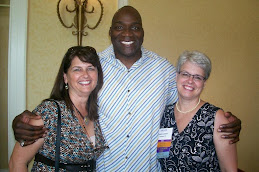You have had a long-standing deal with biology: whatever choices you make during your life might ruin your short-term memory or make you gain weight t or could hasten death, but they won't change your genes — your actual DNA.
The answer lies beyond both nature and nurture. Bygren's data — along with those of many other scientists working separately over the past 20 years — have given birth to a new science called epigenetics.
At its most basic, epigenetics is the study of changes in gene activity that do not involve alterations to the genetic code but still get passed down to at least one successive generation.
These patterns of gene expression are governed by the cellular material — the epigenome — that sits on top of the genome, just outside it (hence the prefix epi-, which means above). It is these epigenetic "marks" that tell your genes to switch on or off, to speak loudly or whisper. It is through epigenetic marks that environmental factors like diet, stress and prenatal nutrition can make an imprint on genes that is passed from one generation to the next.
But the potential is staggering. For decades, we have stumbled around massive Darwinian roadblocks. DNA, we thought, was an ironclad code that we and our children and their children had to live by. Now we can imagine a world in which we can tinker with DNA, bend it to our will.
It will take geneticists and ethicists many years to work out all the implications, but be assured: the age of epigenetics has arrived.
(Time Magazine, Jan 2010)
Yours in health,
Rhonda
DNA Guided Health, Beauty, and Wellness
Educate yourself as we discover why our genetic makeup plays a big part in not only who we are ... but how we age and what health propensities we will need to focus on as we age. Find out what your SNPs (single nucleotide polymorphisms) are and what organic natural products are available to help you.
For more infomation visit: http://www.dnaandyourgenes.com/
For more infomation visit: http://www.dnaandyourgenes.com/
Search This Blog
Tuesday, June 1, 2010
Why Your DNA Isn't Your Destiny
Labels: Rhonda Maguire, DNA, Genewize, vitamins
epigenetics,
Rhonda Maguire Genewize Vitamins Supplements DNA genetic testing skin serum,
Time Magazine
Subscribe to:
Comments (Atom)



